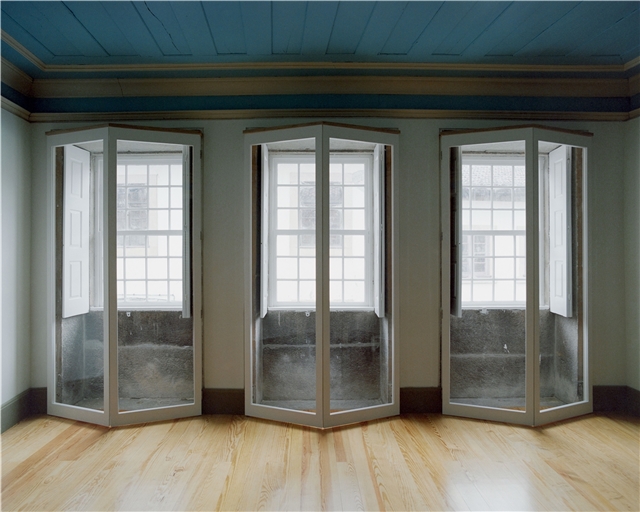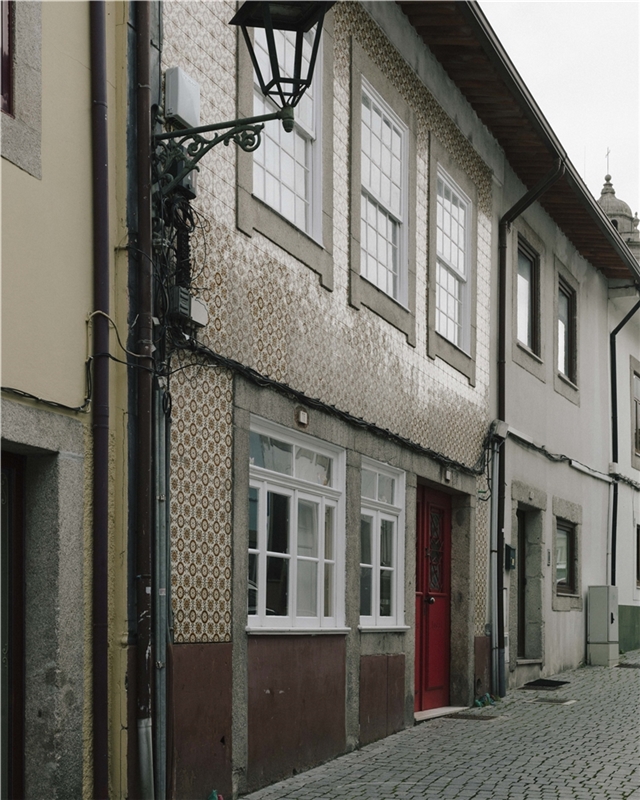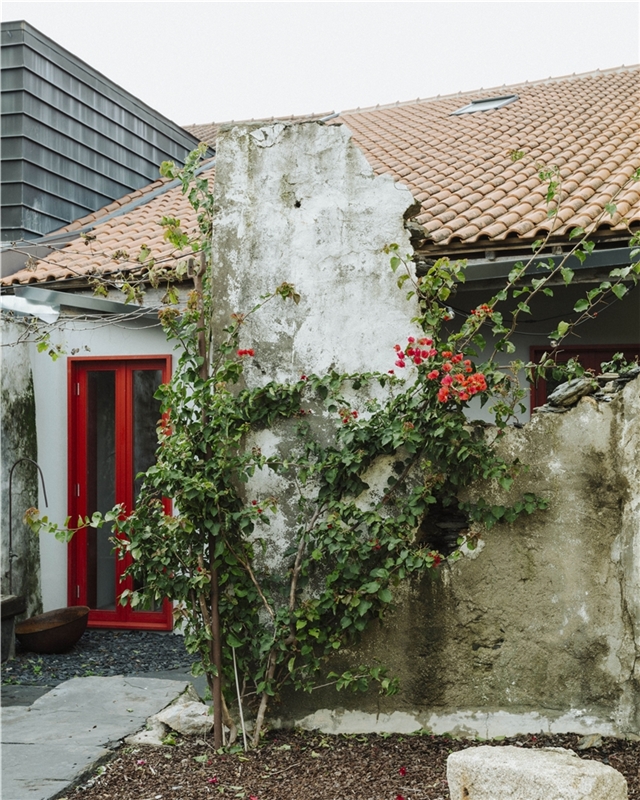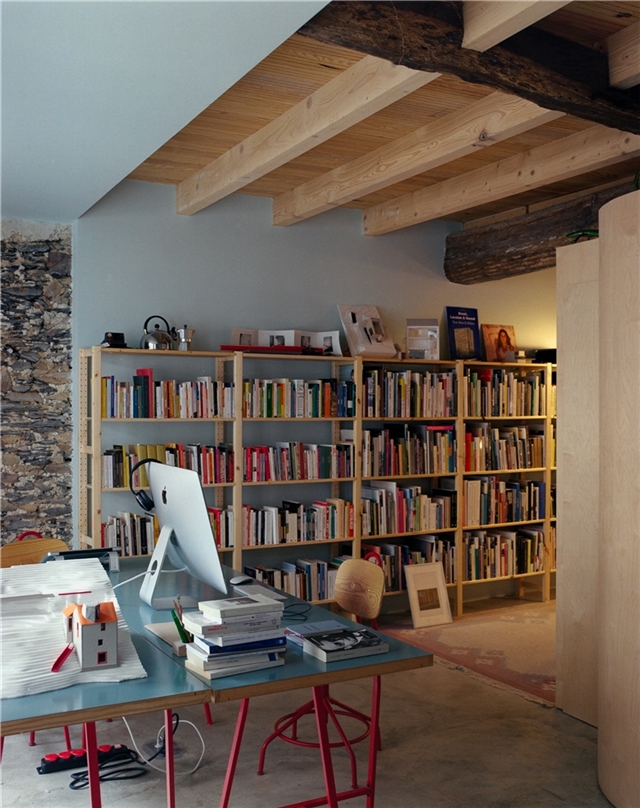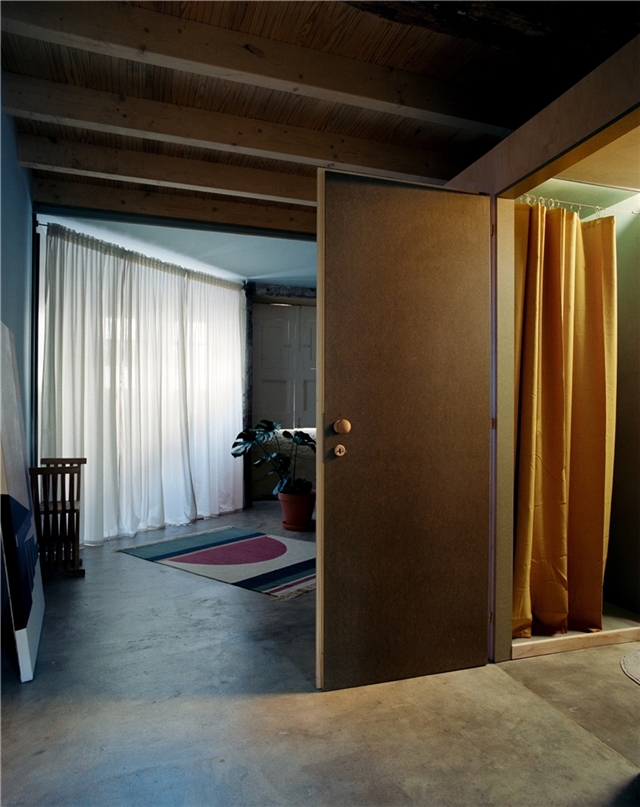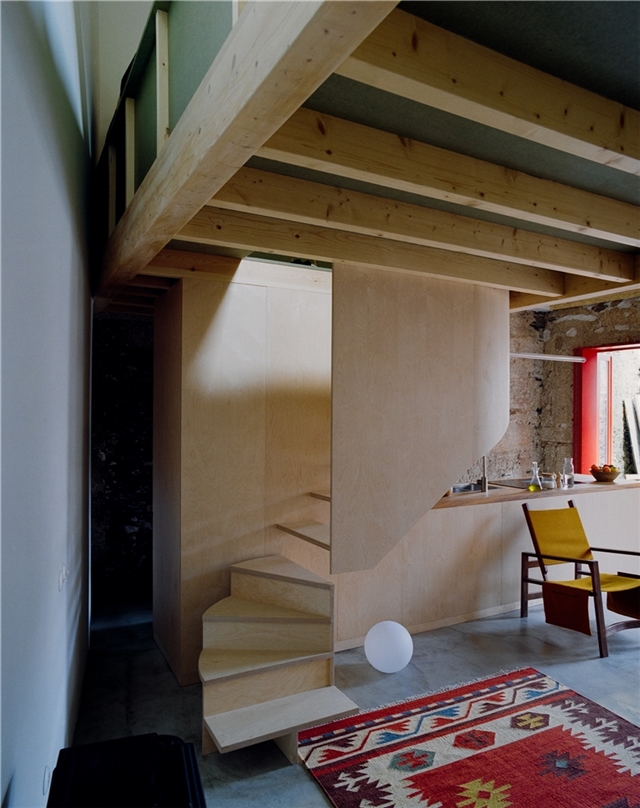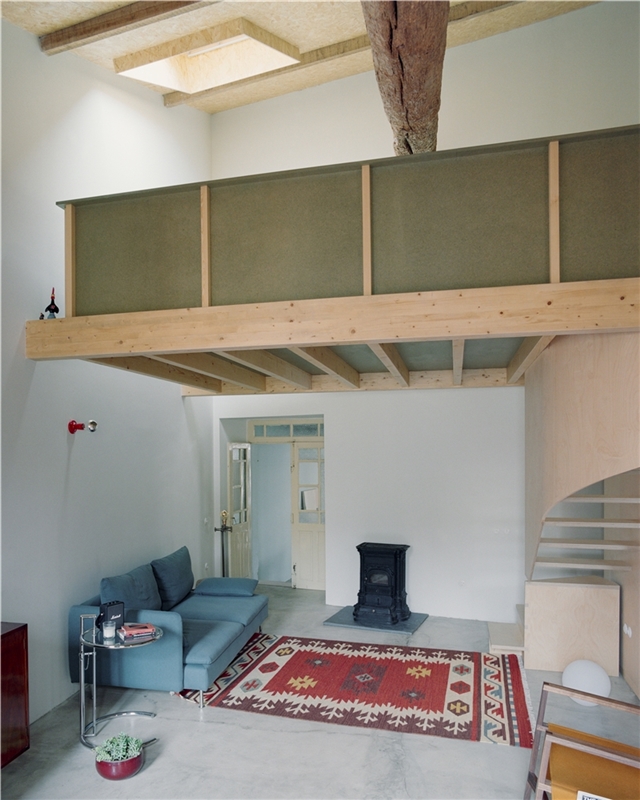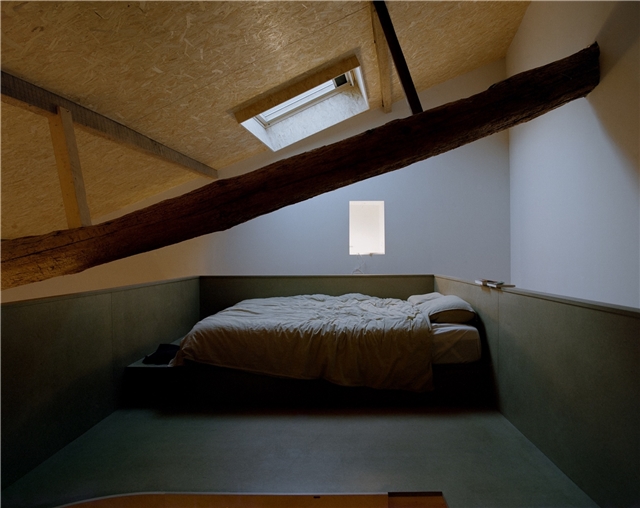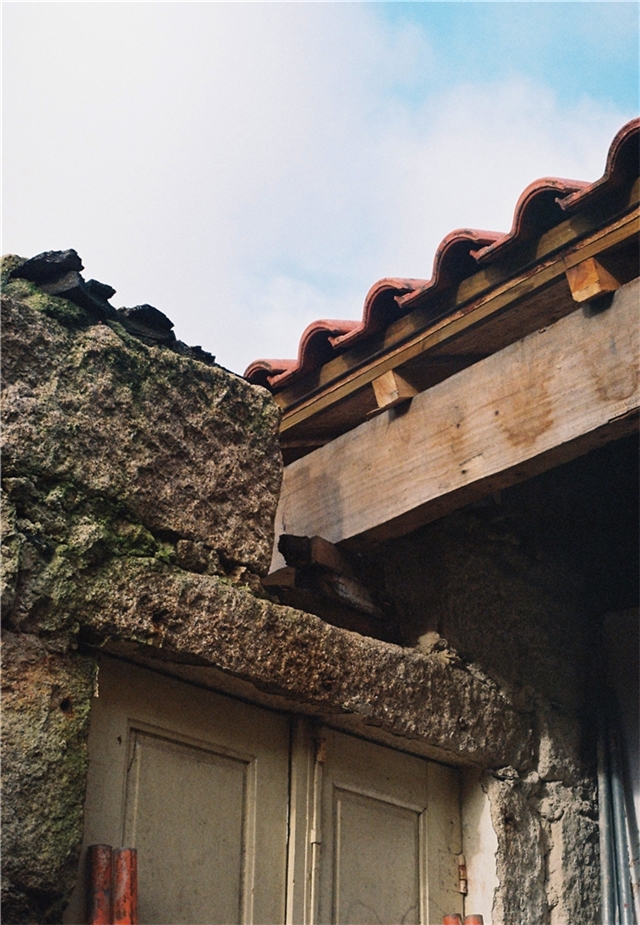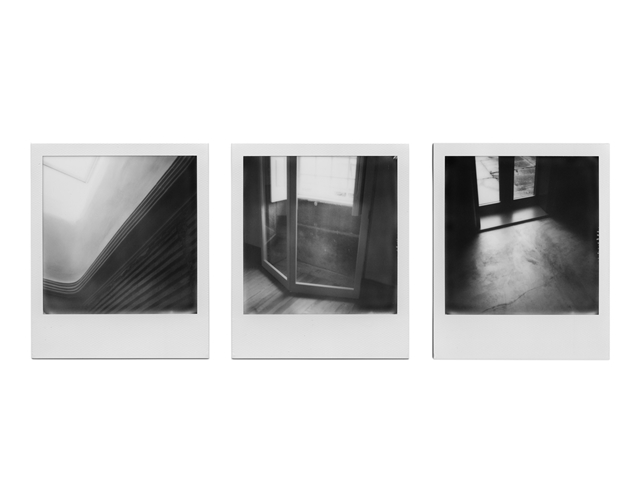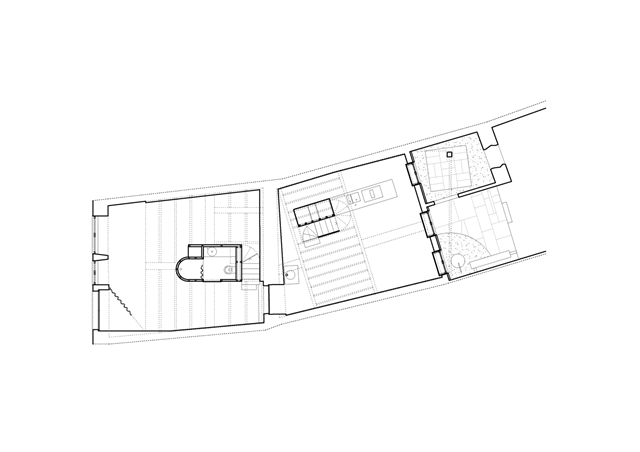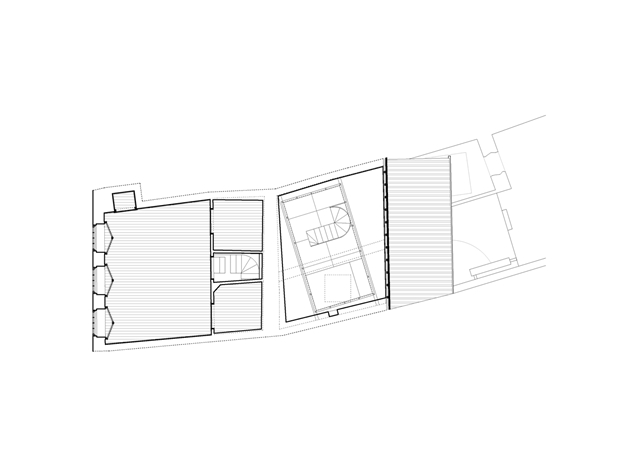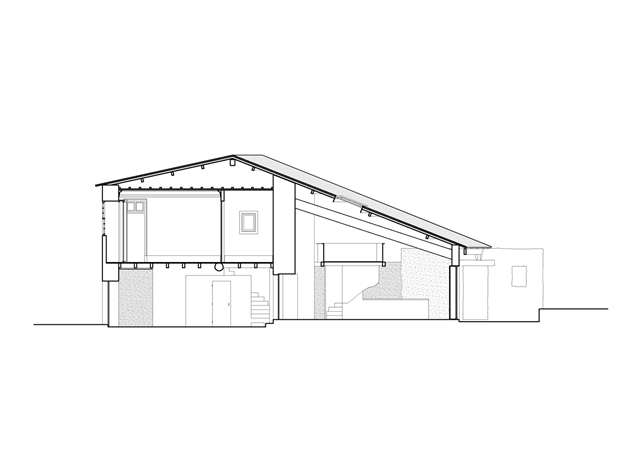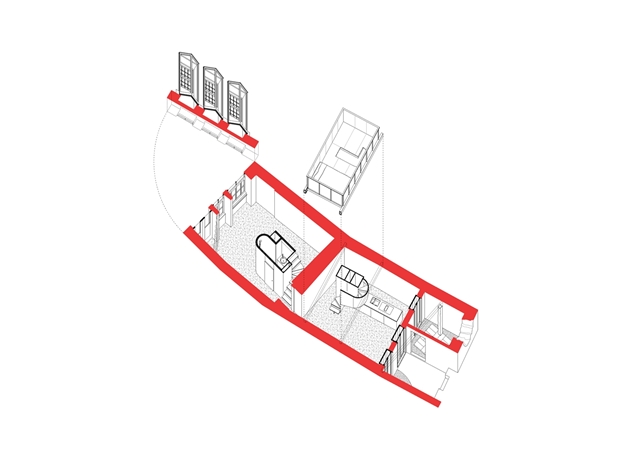In 1995, Lacaton & Vassal wrote that “we deprive ourselves of extraordinary architecture for the sake of some bourgeois comfort”. Based on this assumption, the refurbishment of this bicentenary house aims for its opposite: in other words, an anti-aspirational aesthetic. In it, there are neither master bedrooms nor en-suites. There are no extravagant finishes, built-in wardrobes or walk-in closets. The form of its spaces does not follow predetermined functions, as domestic etiquette is not exactly expected to be respected inside this house.
Outside, you won't find an idyllic garden, but rather a productive garden, shared with a landless farmer. Inside, there is no strict division of labor: the architectural studio, the house and the garden cohabit without overlapping, with contradictions that seek to resolve any antagonisms. The existent building was emptied of the superfluous and only the indispensable was rebuilt: two sculptures, containing the essential infrastructure for its habitability: a kitchen and a bathroom. A mezzanine was added for practical reasons of intimacy. These new volumes were built in pine wood, birch plywood and water-repellent MDF for greater durability. From a plastic point of view, the colors reflect the condition of the materials themselves.
The floors were leveled with the remains of the demolished walls and with a hand-smoothed floor screed, exposed and finished with just a thin layer of wax. Where possible, the granite and slate walls were left visible. The existing wooden structure was replaced only where unavoidable, for safety reasons. An effort was made to keep everything that was possible, adopting the option of "not-making" as a methodological premise. In the middle of the room, a log is the Alberto Carneiro we could never afford. Both the existing entrance door and the wooden windows were restored, without any other work being carried out on the main façade. Even the traces of political posters that had been pasted onto its tiles during the April Revolution have been preserved as a form of material and intellectual heritage. Both the existing roof and the south façade were insulated for energy efficiency reasons. For the same reason, three new wooden frames were produced: painted bright red for protection and evocation, including shutters for intimacy and light regulation. On the north façade, new interior wooden frames were added to create small winter gardens that help keep the heat in and the street noise out.
The design choices we made (and those we didn't) allowed us to achieve a budget of less than 500 euros/m2. For those willing to understand, this house can be read as following the guidelines of a manifesto yet to be written. A manifesto aimed at those who live in so-called "developed" countries and which can only be understood on the basis of the following assumption: (practically) everything we need is already here. Between voids and ruins, every wall is potentially a house, a school, a hospital or a factory. It's up to us to reoccupy, redistribute and reinvent them. Every piece of architecture is an unfinished utopia, provided that, to quote Rossi, we revive "politics as an option".



